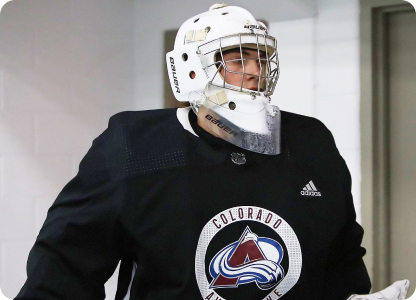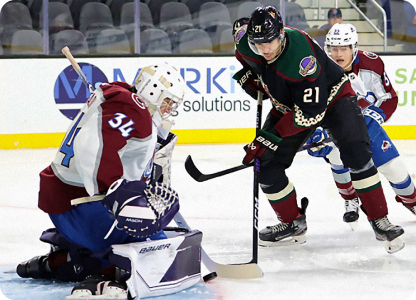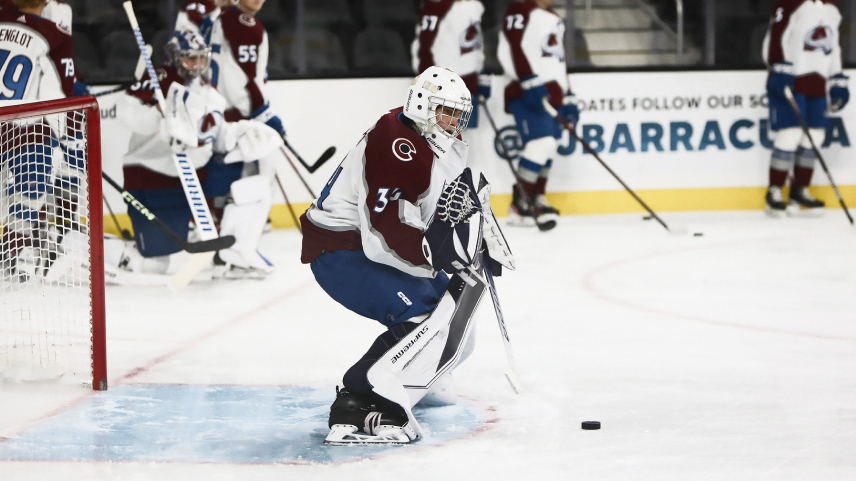Nutrition for ice hockey players: Eat and Drink to Win

Ice hockey is aquick sport that requiresdynamic changes in speed, direction, and frequent physical contact. Players tend to take turns of 30-80 seconds with a 4-5-minute break between them, spending up to 20 minutes of each hour-long game on ice.
It’s essential then for a hockey player to be in their top shape, with the body filled with energy and adequately hydrated. For that, a diet plan for hockey players can come in handy. It’s essential to understand the fundamentals of a hockey diet, and which supplements can give competitive hockey players an edge.
So, what does it take to stay healthy, energized and performing well?


Step 1. Protein
Each day should have you eating around 1.4–1.7g of protein for each kilogram of your weight, regardless of training status. This ensures you’ve got enough for muscle growth.
Space out your protein portions evenly throughout the day. Our bodies undergo a process called protein turnover – proteins are broken down and rebuilt, and this muscle-building process can last up to 48 hours post-workout. It’s therefore important to provide the body with enough protein to ensure the rate of muscle breakdown never exceeds the rate of rebuilding.
Stick to whole foods like chicken, fish, tofu, or legumes when meeting protein goals in your hockey nutrition plan. When using protein shakes, choose products high in leucine, as it strongly supports muscle protein synthesis.
Athlete-focused protein supplements can help meet your daily needs:
- Maxler 100% Golden Whey: 25g of high-quality whey protein and 2556mg of leucine per serving. Available in delicious flavors like Vanilla Ice Cream and Salted Caramel.
- Maxler 100% Golden Whey Natural: 25g of protein with 2754mg of leucine, sweetened with stevia and flavored with natural options like Coconut, Strawberry, and Chocolate.
- Maxler Juicy Isolate: A clear, juice-like protein drink using PRObev™ technology. It contains 2152mg of leucine per serving and is perfect for those who want a lighter option post-workout.
Step 2. Carbohydrates
The foundation of any hockey nutrition plan is providing the body with enough carbohydrates to fuel performance. Consume about 5–7g of carbohydrates per kilogram of body weight, increasing intake on heavy training and match days.
Carbohydrates are the body’s preferred source of energy. After digestion, carbs are broken down into glucose. Some is used immediately, while the rest is stored as glycogen, which fuels your muscles during high-intensity efforts like hockey.
Getting enough carbs helps you perform at your best. Choose low glycemic index (GI) foods like porridge, pasta, and beans for long-lasting energy. During longer training sessions, consider topping up with sports drinks or easy-to-digest snacks. After workouts, replenishing glycogen stores with carbs supports recovery and prepares you for the next session.
Step 3. The Fats
Fats are essential for overall health and athletic performance. Aim for 15–25% of your total daily calories from fat during training, and increase to 25–40% on rest days for hormonal and metabolic balance.
Fats support hormone production, including testosterone synthesis, which is crucial for muscle growth and recovery. A hockey diet plan should include a balanced mix of fat types:
- Saturated fats – Found in animal products like butter and meat. Consume in moderation.
- Monounsaturated fats – Found in olive oil, avocados, and nuts.
- Polyunsaturated fats – Found in walnuts, flaxseed, and fatty fish. These include essential omega-3s.

Step 4. Keep hydrated
Dehydration negatively affects performance, so aim to drink 5–10 oz (150–300 ml) of water every 15–20 minutes during exercise.
Hydration is a key part of any hockey player’s diet. Without enough water, your energy drops, body temperature control worsens, and overall performance declines. If your session goes into overtime or is particularly intense, consider adding carbohydrates to your hydration strategy.
Hydration needs vary between individuals. One way to track it is by weighing yourself before and after training. If your weight remains stable, you’re likely hydrating well. If you lose weight, multiply the pounds lost by 16, then by 1.5 to determine how many fluid ounces you need to rehydrate effectively.
When you sweat, you also lose essential electrolytes like sodium, potassium, and chloride. These minerals must be replenished to avoid fatigue and muscle cramps. To rehydrate optimally, use a drink containing 6–8% carbohydrate and electrolytes. This combination also boosts energy and improves fluid absorption.
For an effective and convenient solution, try Maxler Electrolyte Powder. It comes in portable pouches – perfect to take on the ice.
Eating on Match Days
Match day nutrition requires extra attention to both fueling and hydration to ensure top performance on the ice.
Your pre-match meal should take place about 1–3 hours before the game. Include a balanced combination of carbohydrates and protein, prioritizing low glycemic index (GI) options like white rice or white bread. If you’re consuming fattier proteins like steak, eat them earlier in that window. For longer or high-intensity games, double your carbohydrate intake to ensure sustained energy.
During the match, liquid nutrition works best. A drink containing high GI carbs, whey protein isolate, and electrolytes in a 6–8% solution helps maintain energy and reduce fatigue.
After the match, focus on refueling. Prioritize carbs and protein right away to help replenish glycogen stores and kickstart recovery. If you have multiple games or practices close together, carbs become even more critical. Post-match snacks or shakes are a must in any hockey nutrition plan.
Boosting Your Performance
If you’re looking to enhance your edge on the ice, supplements can support both performance and recovery. Below are some of the most effective options:
- Caffeine – Caffeine has been shown to improve exercise performance and enhance intensity during scrimmages. The recommended dose is 3–6 mg/kg of body weight.
Try:- (USA & RU): Maxler Caffeine 200 – 200 mg per tablet
- (DE): Maxler Guarana 2000 Shot – 200 mg per serving in liquid form
- Creatine – Known for improving sprint capacity and high-intensity bursts, creatine is key for hockey.
Try:- (USA & RU): Maxler 100% Golden Creatine – 5g per serving
- (DE): Maxler Creatine Monohydrate – 3g per serving
- Taurine – Helps increase the uptake of nutrients and boosts essential amino acid levels in muscle post-exercise.
Try: Maxler Taurine 1000 mg – a fast-absorbing energy and focus enhancer.
Don’t Forget the Micronutrients
While macronutrients get most of the spotlight, staying on top of your micronutrient intake is just as critical for performance, recovery, and long-term health. Hockey players, in particular, are prone to deficiencies due to high physical demands and indoor training environments.
Vitamin D – A surprisingly common issue, vitamin D insufficiency affects hockey players of all ages. This vitamin supports bone strength and can improve performance.
Try: Maxler Vitamin D3 1200 IU – an easy way to meet your daily D3 needs.
Iron – Essential for oxygen transport and energy, iron deficiency is a common cause of fatigue, especially in female athletes.
Try: Maxler Iron 25mg – a vegan-friendly iron supplement that’s gentle on the stomach and highly bioavailable.
Calcium – Key for muscle contraction and bone repair. Athletes often lose calcium through sweat, making supplementation beneficial.
Try: Maxler Calcium Citrate + D3 – 600mg of calcium with vitamin D for optimal absorption.
Vitamin B-Complex & Zinc – B1, B2, biotin, and zinc help convert glucose into usable energy. This is crucial for energy levels and muscle function during games and training.
Try: Maxler VitaMen or Maxler VitaWomen – complete daily multivitamin blends with added antioxidants and performance-boosting complexes.
Omega-3 Fatty Acids – These healthy fats support recovery and muscle maintenance, while also reducing inflammation.
Try: Maxler Omega-3 Premium – 650mg of omega-3s per citrus-flavored softgel to support joint and muscle recovery.
Fueling your body with the right nutrients to succeed in hockey isn’t always easy — but with the right approach and support, it becomes a sustainable path to peak performance. A well-balanced hockey diet prioritizes energy, recovery, and consistency, helping you stay energized and focused on the ice. Ultimately, the best plan is one you can stick with for the long term. Here’s to more strength, speed, and unforgettable moments on the rink!











